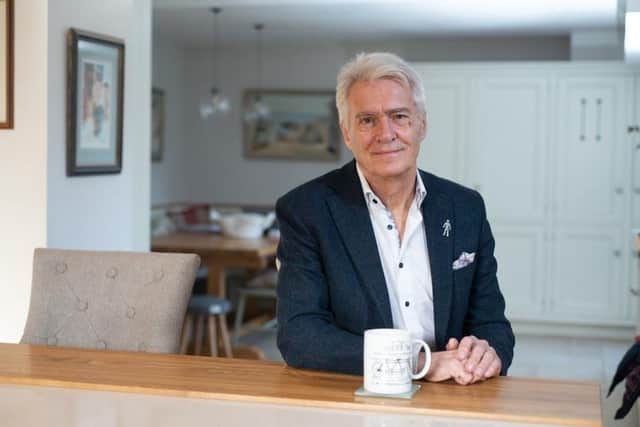Northamptonshire surgeon calls for bins to be put in men’s toilets for those experiencing incontinence
and live on Freeview channel 276
In Northamptonshire, 449 men were diagnosed with prostate cancer last year, according to Prostate Cancer UK and phs group.
One in eight men will get prostate cancer, rising to one in four for Black men in the UK. One man dies from the disease every hour.
Advertisement
Hide AdAdvertisement
Hide AdOut of the more than 475,000 men living with or after prostate cancer, many will experience urinary incontinence as a side effect of treatment for the disease.


Professor Bill Ribbans, 68, from Great Houghton, is a consultant orthopaedic surgeon and professor of sports medicine working at the County Clinic in Northampton.
He was diagnosed with prostate cancer in May 2018 and suffered from urinary incontinence whilst recovering from surgery to remove his prostate.
He said: “By now, I'm managing well, though the first month or two is a real shock.
Advertisement
Hide AdAdvertisement
Hide Ad“Being a doctor, I was more prepared than I am sure many patients are, as I did so much independent research into post-surgery incontinence, so I had an idea what was coming. Regardless, those times were tough and you do think to yourself. ‘Am I ever going to get over it?’”
Four weeks after surgery, Bill went to the Lake District to walk with his wife, who is a nurse, and he could not find anywhere to dispose of his incontinence pads. He had no choice but to put them in a plastic bag and take them home with him.
Bill said: “I felt too embarrassed about leaving them in the hotel. I didn’t want the cleaners to find them in the open waste paper bin. I was really embarrassed about leaving them, there should be facilities available to men like us.”
When men experiencing urinary incontinence in the East Midlands were surveyed about the challenges they faced in public washroom facilities, 45 percent said they found it hard to locate a hygiene bin, 63 percent felt anxious about leaving the house and 100 percent felt depressed about the deterioration of their lives.
Advertisement
Hide AdAdvertisement
Hide AdAs a result, they resorted to desperate strategies including taking a bag out with them that they can empty when back home (35 percent), asking their partner to keep them in their handbag (29 percent) or wearing the pads longer than advised (29 percent), which can cause further health risks.
More than one in ten respondents said they even resorted to flushing incontinence pads down the toilet.
Bill wants to start the conversation on male incontinence on a wider basis and campaign for providing bins in men’s cubicles as standard.
After completing post-surgery physiotherapy, Bill’s social life is only marginally affected by “waterworks worries,” as he dubs them.
Advertisement
Hide AdAdvertisement
Hide AdHe said: “I have learnt that I can’t drink six pints of beer and dance all night like I used to. But, I am alive and I’ve survived prostate cancer and 99.9% of life is normal. I am extremely grateful for that.”
